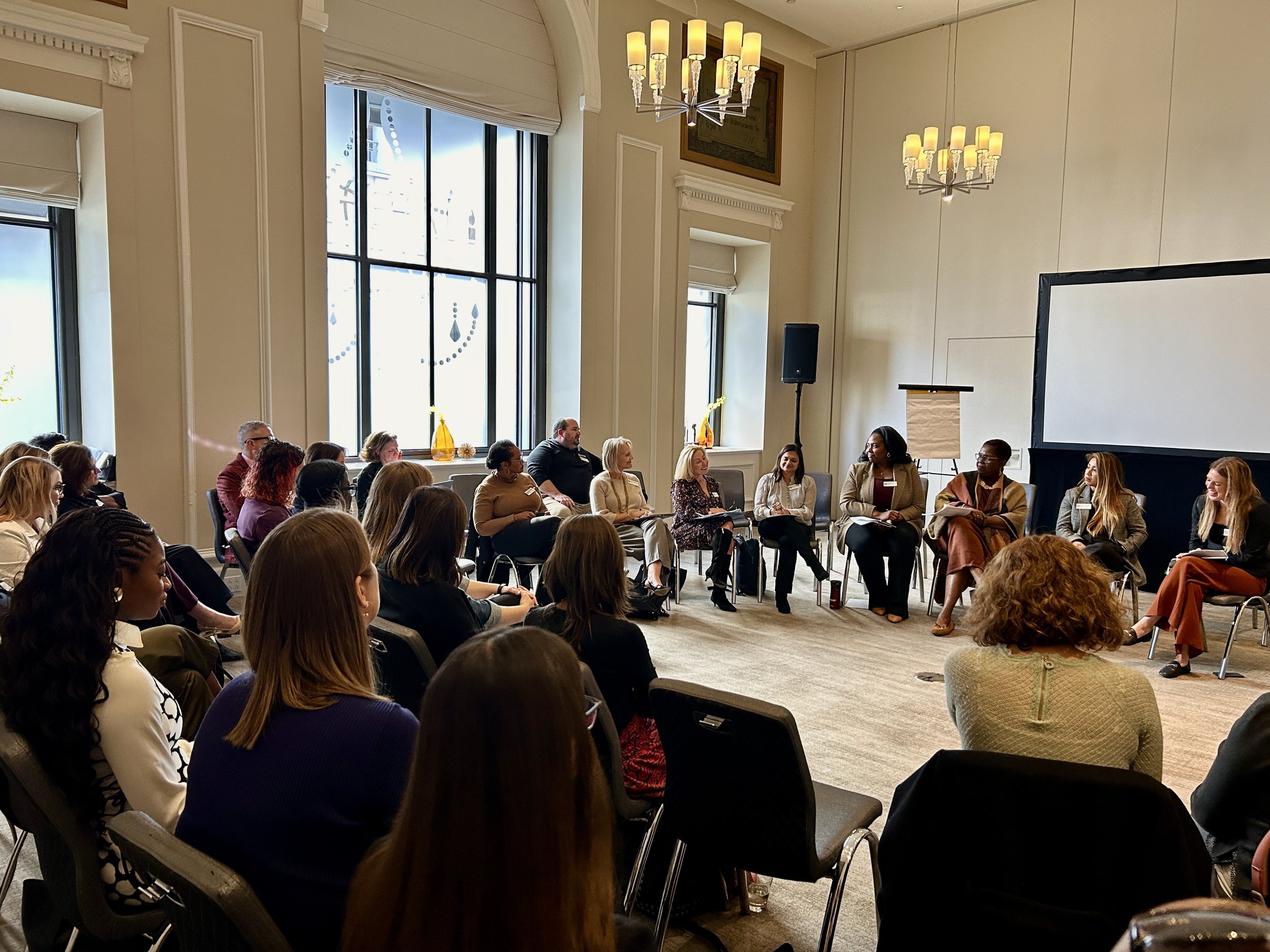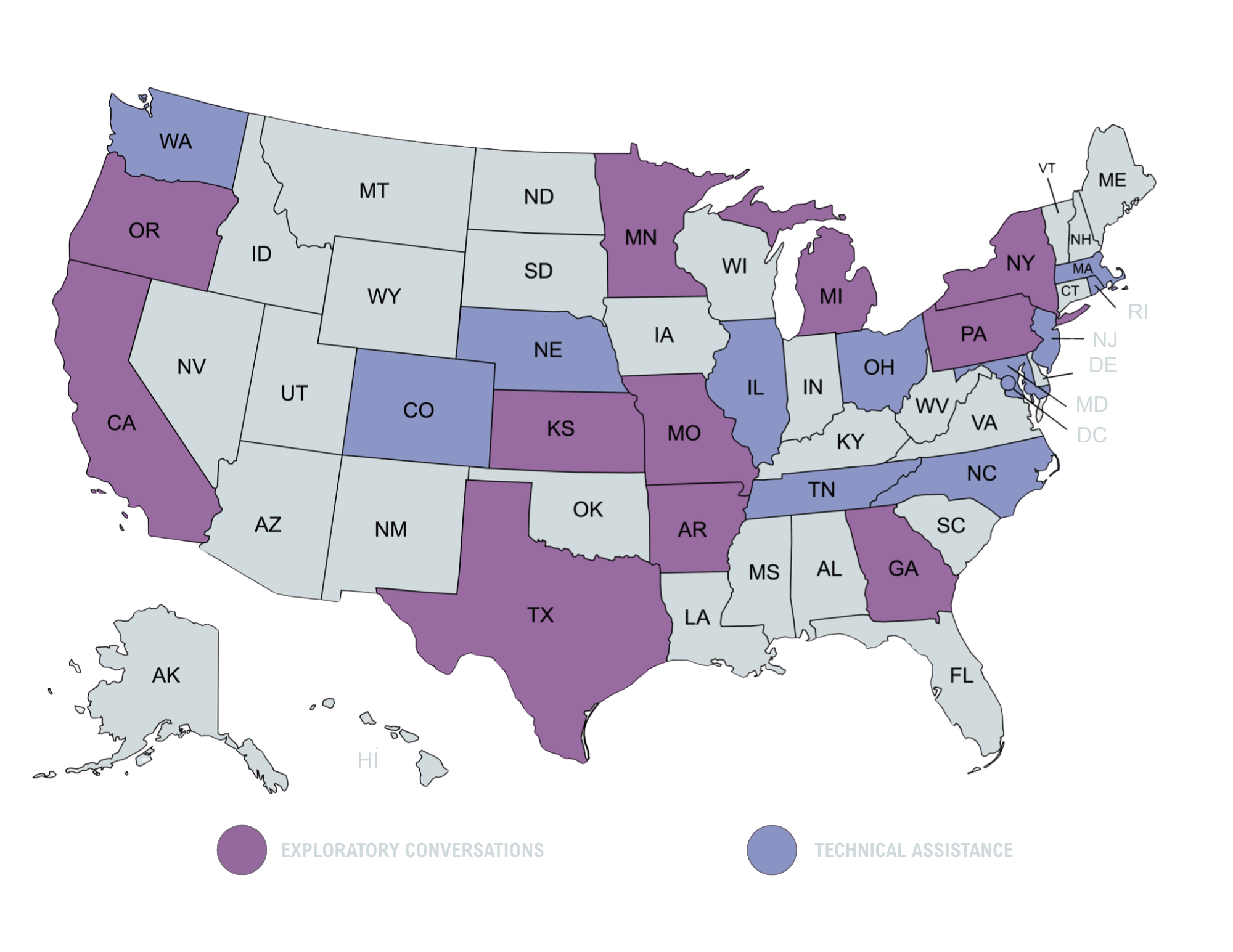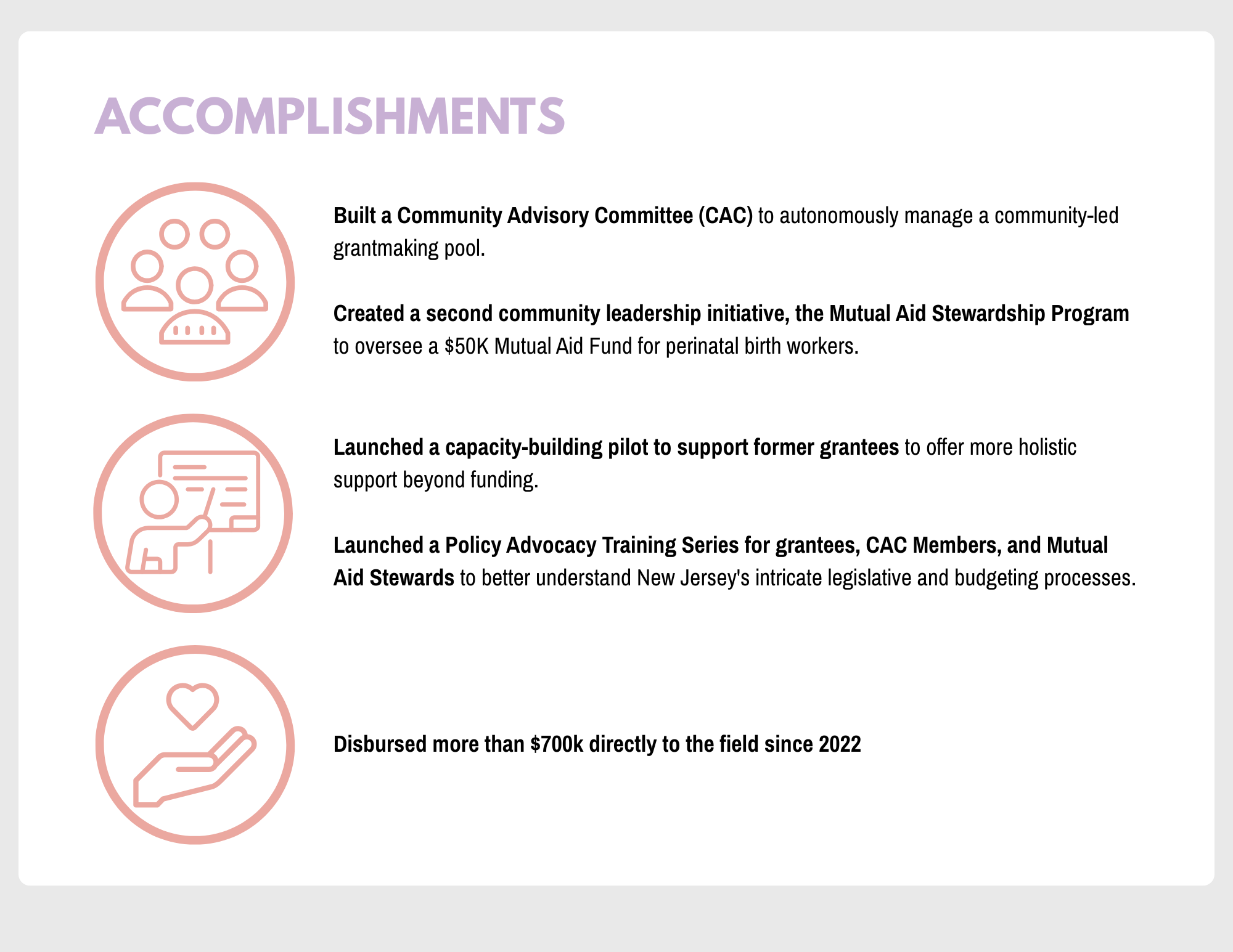
Driving Change
Through Place-Based Philanthropy
In collaboration with Afton Bloom and Boldly Go Philanthropy, CHAP helped launch the State Exchange for Maternal Health to provide a platform where funders could share best practices for public-private partnerships; direct more funding to state-level maternal health initiatives; and strengthen existing health systems by ensuring resources go where they are needed most.
Members of the State Exchange have access to free learning opportunities, including quarterly calls on issues of national interest, and affinity groups for more focused conversations on midwifery, federal funding, and more
State Exchange for Maternal Health: Working Together for Longterm Transformation
State of Birth Equity Initiative (SOBE)
As the technical assistance arm of the State Exchange, SOBE provides support for funders seeking greater alignment across their state’s birth equity ecosystem, catalyzing collaborative philanthropic action with the aim of creating optimal birth conditions for all people.
HOW WE WORK
-
Facilitate convenings for funders and other partners, including state government, to learn and act together.
-
Conduct interviews, surveys, and secondary research on each state’s birth equity landscape
-
Our team members provide recommendations for grantmaking, convening, and other changemaking opportunities.
-
Advise on funder collaborative structure and operations and develop operational charters.
-
Make introductions to peers in other states and host cross-state learning sessions.
An Expanding Footprint
Since 2022, the SOBE team has provided technical assistance to funders and government partners in eleven states and held exploratory conversations in eleven more.
Additional funding for the State Exchange is provided by the Cambia Health Foundation and Pritzker Children’s Initiative.
The New Jersey Model:
A Blueprint for Change
In 2021, following the release of the Nurture New Jersey maternal health strategic plan, a group of funders came together to explore how philanthropy could support its implementation.
Five foundations, including CHAP, joined forces to form the New Jersey Birth Equity Funders Alliance. SOBE was inspired by the early success of this collaborative philanthropic model. What began as a state-level response to maternal health disparities laid the foundation for a national approach to birth equity.
Since 2022, SOBE has provided catalytic support to partners across the country, helping to seed and convene early conversations, accelerate efforts, and amplify impact at state and community levels. This report documents meaningful progress towards birth equity made by funders and partners in nine states and what we’ve learned in the process about the value of collaboration.




